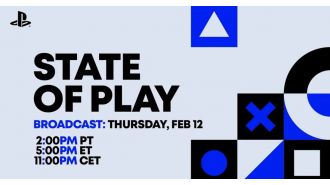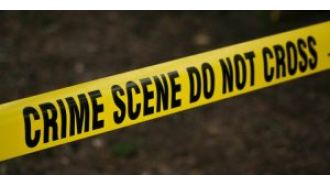Family received horrific message during dad's death
Why do people want to inflict more suffering on a family already enduring so much?

Lauren's father's story is one that showcases incredible resilience in the face of unimaginable suffering. It's a story that has stayed with me for years, one that I will never forget. I can still vividly remember the first hate letter our family received in 2010, condemning us for supporting my father's fight for assisted dying. It was just one of many that we would receive, all while my father was enduring immense pain. But surprisingly, my father wasn't too bothered by these letters. In fact, he found a strange sense of satisfaction in knowing that he was making an impact, that he was provoking a reaction from people. I think my mother, my younger sister Beth, and I all shared this sentiment. We understood that this was a highly controversial and emotional topic, and we accepted that not everyone would support our cause.
These hate letters began pouring in after my father, Tony Nicklinson, became the face of the assisted dying movement in the UK. His story is one of incredible strength and resilience in the face of unimaginable suffering. It all began in June 2005 when my father suffered a stroke while on a business trip to Athens. The stroke left him with locked-in syndrome, fully conscious but completely paralyzed and unable to speak or move. It was like he was trapped in his own body. Before this tragic event, my father was a vibrant, active man who loved life, cherished his family, and embraced every challenge with enthusiasm. He was a social creature who thrived in the company of others. So you can imagine how devastating it was to see him suddenly transformed into a shell of his former self. We found it difficult to watch him waste away, but our love for him never wavered.
My father was able to communicate through eye blinks, so we had a Perspex board with color-coded letters that we used to piece together his thoughts. When we first got this system going, the first thing he asked for was a pint of beer! But as time went on, we used it for more practical things like when he needed to use the bathroom or when he wanted to correct my grammar. The idea of assisted dying first came up in our family about six months after my father's stroke. He expressed his desire to end his life, as he felt trapped in a constant state of suffering. It was a difficult conversation to have, but after seeing my father's daily agony, we came to understand his wish and shared his conviction that he deserved the right to choose.
We didn't have any religious objections to assisted dying. For us, it was a matter of personal autonomy and human dignity. So around 2010, my mother, sister, and I, along with our incredible legal team, embarked on a battle to change the law. We wanted to give my father the option to end his life at home, on his own terms, with medical assistance. But our fight was not just for my father, it was for anyone facing incurable suffering.
After receiving initial press coverage, the hate letters started pouring in. Many were filled with vitriol and signed by their authors, accusing our family of trying to play God. These accusations hurt deeply. I couldn't understand why strangers would wish such torment upon a family already grappling with immense pain. It seemed that the idea of euthanasia didn't sit well with some people, especially those with religious beliefs. As a result, there were some nasty comments on Twitter from vocal opponents. We knew that being in the public eye would come with its challenges, and this was just one of them.
Unfortunately, despite my father's profound suffering, our legal challenge was ultimately unsuccessful. In June 2012, the High Court ruled against us, stating that it was an issue for Parliament to decide. This was devastating to our family, as it meant my father would continue to suffer without the relief he desperately sought. It was especially hard for my father, who truly believed in the validity of our arguments and found it difficult to accept the court's decision.
After the ruling, my father's health rapidly declined. He developed pneumonia and, ultimately, a collapsed lung. But he refused treatment, choosing to let nature take its course. Watching him suffer through those last days, struggling to breathe, was excruciating. He passed away a few days after we lost the court case in July 2012, at the age of 58, surrounded by his family. This was almost exactly seven years after his stroke. That means he endured seven years of unimaginable suffering.
In the aftermath, our grief was compounded by the feeling that justice had not been served. My father's death was not the peaceful, dignified end he deserved. Instead, it was marked by pain and struggle, a stark contrast to what he had fought for. He endured unimaginable suffering, in ways that most of us could never comprehend.
I wish more people understood that assisted dying is not about devaluing life, but about respecting individual choice and alleviating suffering. It's about giving people like my father the dignity to decide their own fate, especially when faced with irreversible and unbearable pain. The ability to choose death can often empower individuals to continue living, knowing they have control over their own destiny.
As the years go by, I fear that my father's story will be forgotten by Parliament. The most recent bill in the House of Lords is titled the 'Assisted Dying for Terminally Ill Adults Bill', which means it only applies to those who are terminally ill. But my father was not terminally ill, he was suffering, and his story is being ignored. This is why organizations like My Death, My Decision are fighting for a compassionate law on assisted dying for adults of sound mind who are suffering intolerably or terminally ill. They believe in giving a dignified choice to those with physical, incurable conditions who face years of constant pain or suffering that they find unbearable.
My mother and I tried to share our story with a recent inquiry panel, but we never received a reply. I understand that the issue of assisted dying is complex and deeply personal, but at its core, it's about autonomy. What is right for one person may not be right for another, and everyone deserves the right to make that decision for themselves. For my father, and for countless others, this right is essential.
As we continue to push for change, I hope my father's story serves as a catalyst. We need a compassionate and humane approach to assisted dying that respects individual autonomy and offers a dignified end to those enduring unbearable suffering. Let us remember Tony Nicklinson not just for his suffering, but for his courage and his fight for the right to die with dignity. Thank you for taking the time to read my father's story. If you have a story you'd like to share, please get in touch. And don't forget to share your thoughts and views in the comments below.
8 Views










